Keywords: Dance
There are more than 200 results, only the first 200 are displayed here.
-

AUSTRALIA
- Michael Mullins
- 07 April 2014
7 Comments
Federal Treasury secretary Martin Parkinson has called on the Government to increase the GST. In isolation this would hurt the poor and benefit the rich. But it could help the common good if it is part of a tax reform package that cuts tax avoidance strategies for high income earners, including superannuation concessions, negative gearing and trusts.
READ MORE 
-
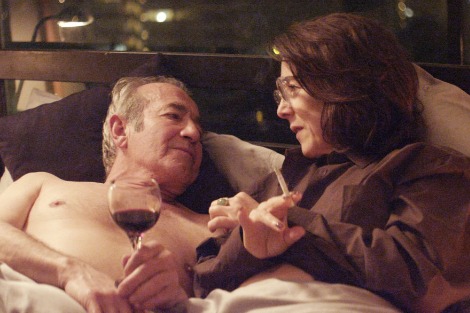
ARTS AND CULTURE
- Tim Kroenert
- 20 March 2014
3 Comments
A new film follows the experiences in 1961 of German-American Jew and political theorist Hannah Arendt, who coined the phrase 'the banality of evil' in relation to Nazi 'desk-murderer' Adolf Eichmann. The cerebral nature of Hannah Arendt provides a counterpoint to another current film about a strong, flawed woman: Gloria is remarkable for the way it unabashedly honours the emotional and sexual lives of its older characters.
READ MORE 
-
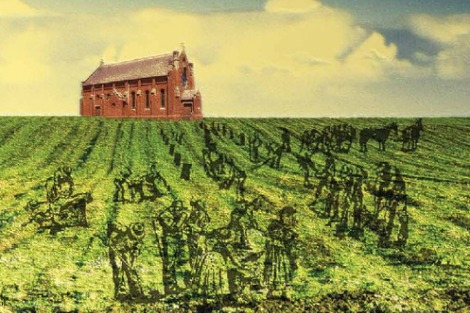
RELIGION
- Andrew Hamilton
- 13 March 2014
9 Comments
The conflict began with falling church attendances and a decision by the Koroit parish priest to rationalise resources. Although Regina Lane describes in detail the battles to save St Brigid's, her book is far more than a protest song against the power of the Catholic Church. The larger stories embodied at St Brigid's, the immigrant groups who formed the first congregation and their relationship to the first Australians, have continuing importance.
READ MORE 
-
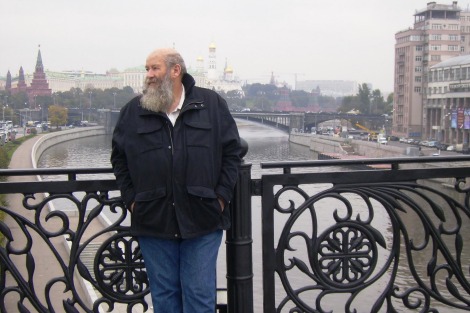
INTERNATIONAL
- Howard Willis
- 19 February 2014
6 Comments
On the occasions I got into detailed discussions with strangers in Moscow, a pattern emerged. Saying I was Australian prompted a polite request for clarification: 'But your ancestry?' The reply that I was fifth-generation Australian was treated as an evasion, or met with the assumption that my ancestors were 'bandits'. Generally, Muscovites took a second look at me and the box they ticked was 'Jew'.
READ MORE 
-

AUSTRALIA
- Moira Rayner
- 07 January 2014
9 Comments
Gillard is the most prominent woman in our country. She has been repeatedly humiliated, disparaged and ridiculed for that very reason. We may criticise her decisions, but always aware of the context in which they were made, which is dangerously toxic. Her courage under pressure is astonishing, but we ought to despair at her party which is willing itself into annihilation by adding more poison.
READ MORE 
-

ARTS AND CULTURE
- Barry Gittins, Michael Sharkey and Chris Wallace-Crabbe
- 02 December 2013
3 Comments
The diggers' catchcry, liberty, saw fascism a'yawning/ enfranchisement followed suit, with racism adorning/ its streamlined passions for the cause — White Australia Policy a'borning.
READ MORE
-

ARTS AND CULTURE
- Philip Harvey
- 07 November 2013
6 Comments
Saying we love someone can take all our courage, our wisdom, our foolishness. Often we don't know how to say it. When we do get to say we love someone, sometimes we reach for the pitch known as poetry. Of all the art forms, poetry and song relay love most immediately. A new book of Australian love poems shows how poetry can stretch the message to screaming point, or say it all in a few seconds.
READ MORE 
-

RELIGION
- Peter Kirkwood
- 06 November 2013
4 Comments
READ MORE 
-
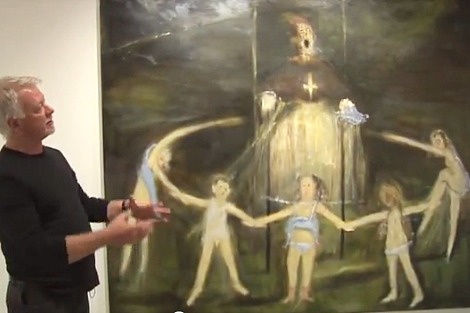
RELIGION
- Peter Kirkwood
- 06 November 2013
In the years after it began in 1951, the Blake religious art prize was dominated by conventional Christian themes and symbols. More recently its inclusion of images associated with human justice has reflected the increasing multifaith character of religion in Australia together with religious believers' concern for human peace and justice.
READ MORE 
-

ARTS AND CULTURE
- Bronwyn Lay
- 23 October 2013
5 Comments
Human land practices and increasing temperatures alter the earth, and are influenced by politics, law, philosophy and economics. In Lisbon, Western philosophy sought to sever God from nature; now we pretend that the fusion of humans and nature doesn't exist. The term natural disaster shouldn't be trusted. It is superstitious to think humans and nature aren't locked in a reciprocal relationship with political and ethical responsibility.
READ MORE 
-
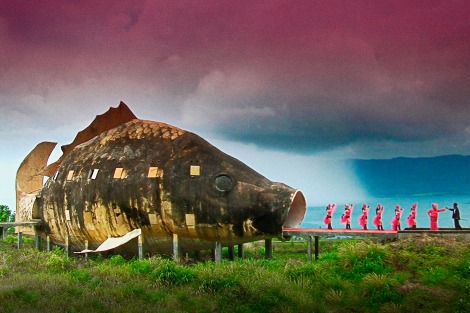
ARTS AND CULTURE
- Tim Kroenert
- 03 October 2013
3 Comments
In Australia the reality of ongoing Indigenous disadvantage is proof of the effect of past atrocities on the structure of ensuing society. Likewise, despite some democratic progress in recent times, Indonesia's unhealed past remains a source of serious human rights problems. The Act of Killing demonstrates a direct continuum between the evils of the past and the present political reality.
READ MORE 
-

ARTS AND CULTURE
- Tim Kroenert
- 12 September 2013
3 Comments
A boy plays a treacherous prank on his brother while visiting the beach. A domestic violence victim finds comfort in a bizarre distortion of Christian faith. A man sees a news report and follows his memories back to the day of a childhood tragedy. A woman, grieving for a broken marriage, paws through her husband's box of memories. The filmmakers put their stamp on each story while paying due reverance to Winton's sublime prose.
READ MORE 